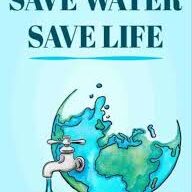Clean Water Is Essential
Clean water is a vital part of our daily lives not just for cleaning, but also for drinking, cooking, and growing food. Despite the abundance of water on Earth, over 96% of it is saline and found in oceans. That leaves only a small portion as accessible, fresh water.
The average household uses approximately 88,000 gallons of water each year, with faucets and clothes washers accounting for a significant share. While modern innovations have helped reduce this number, water conservation remains a shared responsibility.
Progress in Efficiency
Thanks to technological advancements, the average household’s daily water use decreased by 22% between 1999 and 2016. For example:
- Washing machines now use about 31 gallons per load, down from 41 gallons in 1999; that is, a 36% reduction.
- Dishwashers have also improved, dropping from 10 gallons per load to 6.1 gallons over the same period.
While these improvements are impactful, our habits at home can further contribute to saving this precious resource.
Water-Saving Tips for the Home
- Do It Efficiently
- Aim for Full Loads: Whether it’s the dishwasher or washing machine, wait until it’s full. The water use remains the same, whether you run a half or full load.
- Go Automatic: Studies show that using appliances for washing is more water-efficient than hand-washing (Stamminger).
- Turn Off the Tap: Avoid running water unnecessarily when washing hands, dishes, or clothes.
- Upgrade When Possible: Replace older appliances with newer, water-efficient models.
- Do It Once
- Avoid Re-Washing: Clean things properly the first time to reduce the need for a second wash, which doubles water usage.
- Skip Pre-Rinsing: Instead of rinsing, scrape food off dishes and load them directly into the dishwasher.
- Pre-Treat Stains: Apply stain remover before washing clothes to avoid having to wash the garment again.
Saving water isn’t just about reducing utility bills, it’s about protecting one of our planet’s most essential and limited resources. Small changes in daily habits, from how we load our appliances to how we handle dirty dishes or laundry, can collectively make a big impact. By doing our part to use water wisely, we ensure its availability for future generations and contribute to a more sustainable world.








